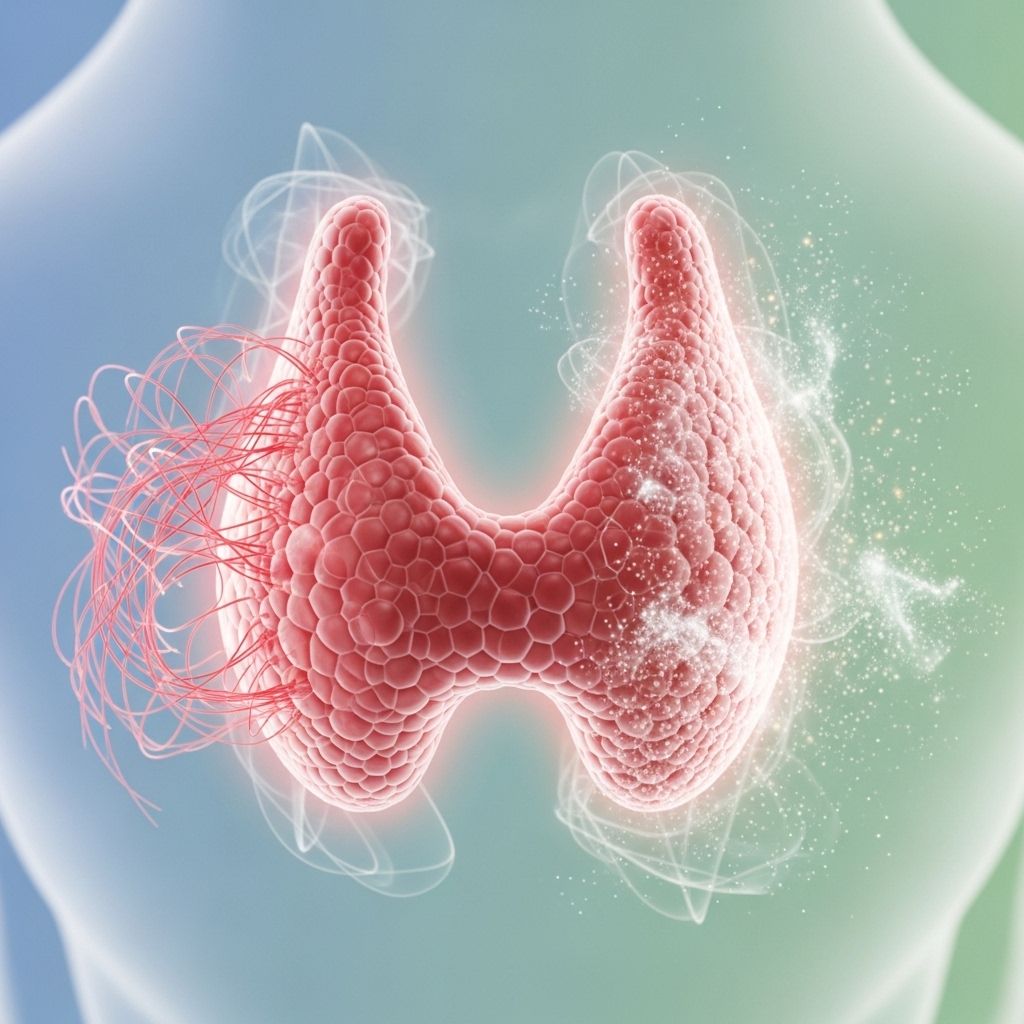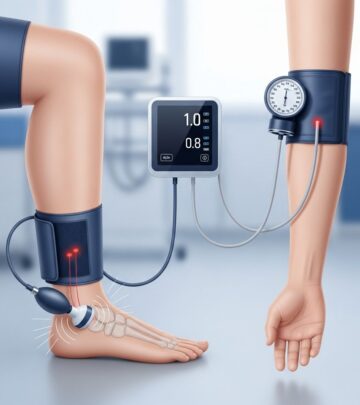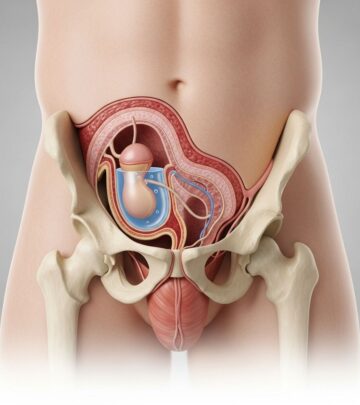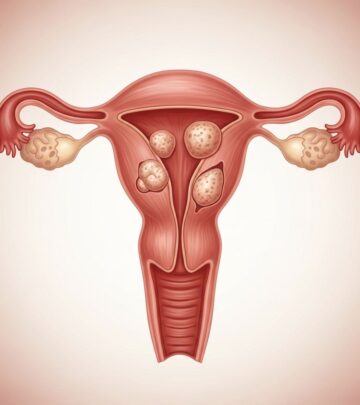Hyperthyroidism: Symptoms, Causes, and Essential Information
Get detailed insights into hyperthyroidism, its causes, signs, complications, and risk factors for better thyroid health.

Hyperthyroidism, or overactive thyroid, is a medical condition in which the thyroid gland produces excessive amounts of thyroid hormones. These hormones influence almost every organ in the human body, regulating metabolism, heart function, temperature sensitivity, and energy levels. Understanding hyperthyroidism is essential for recognizing symptoms early, seeking timely diagnosis, and exploring effective treatment options.
What is Hyperthyroidism?
The thyroid gland is a small, butterfly-shaped organ located at the front of your neck. It produces vital hormones that control the body’s metabolic rate and affect critical functions such as breathing, heart rate, digestion, and emotional stability. Hyperthyroidism occurs when the thyroid gland produces more hormones than the body requires, leading to an acceleration of various physiological processes.
- Increased metabolism leads to rapid heart rate and weight loss.
- Many organs and processes—including sleep, moods, digestion, and menstruation—are affected.
- If left untreated, hyperthyroidism can result in serious complications involving the heart, bones, and muscles.
Symptoms
The symptoms of hyperthyroidism can vary widely from person to person. They may develop gradually or appear suddenly. Not everyone will experience all symptoms, and the severity can differ based on age, the underlying cause, and overall health.
- Unintended weight loss, even with a normal or increased appetite
- Rapid or irregular heartbeat (palpitations)
- Nervousness, anxiety, or irritability
- Tremors, usually noticeable in the hands or fingers
- Excessive sweating and intolerance to heat
- More frequent bowel movements or diarrhea
- Fatigue and muscle weakness, particularly in the upper arms and thighs
- Trouble sleeping (insomnia)
- Thinning skin and fine, brittle hair
- Increased sensitivity to heat
- Changes in menstrual patterns in women
- Enlarged thyroid gland (goiter), causing visible swelling at the base of the neck
- Mood swings and irritability
- Loss of appetite (more common in older adults)
- Withdrawal from social interactions (sometimes mistaken for depression in older adults)
| Symptom | Young Adults | Older Adults |
|---|---|---|
| Weight Loss | Common | Very Common |
| Anxiety/Restlessness | Common | Less Pronounced |
| Loss of Appetite | Rare | More Frequent |
| Withdrawal/Social Changes | Occasional | Can Mimic Depression |
| Palpitations | Common | Common |
Graves’ Disease and Thyroid Eye Disease
Graves’ disease is the most common cause of hyperthyroidism and is an autoimmune disorder, meaning the immune system attacks the thyroid gland, triggering it to release more hormones. People with Graves’ disease may develop complications beyond typical hyperthyroidism, such as thyroid eye disease (also known as Graves’ ophthalmopathy).
Symptoms Specific to Graves’ Disease
- Enlarged thyroid gland (goiter)
- Bulging eyes (in about 25% of cases)
- Dry, red, or inflamed eyes
- Pressure or pain behind the eyes
- Double vision or vision loss (in severe cases)
- Thick, discolored skin on the shins or tops of the feet (Graves’ dermopathy)
Features of Thyroid Eye Disease
- Bulging eyes and difficulty closing eyelids
- Gritty, irritated, or dry sensation in the eyes
- Puffy eyelids
- Increased sensitivity to light
- Blurred or double vision
Other Causes of Hyperthyroidism
While Graves’ disease is the most prevalent cause, several other conditions and factors can lead to hyperthyroidism:
- Thyroid nodules: Benign growths that produce excessive thyroid hormone. These are more common in older adults.
- Thyroiditis: Inflammation of the thyroid gland, which causes stored hormone to leak into the body, resulting temporarily in excess thyroid hormones.
- Excess iodine: Overconsumption of iodine from medications, supplements, or foods can overstimulate the thyroid.
- Too much thyroid medication: People treated for hypothyroidism might inadvertently take too much thyroid hormone, causing hyperthyroidism.
Risk Factors
Some individuals have a higher risk of developing hyperthyroidism. Understanding these risk factors is crucial for early detection and prevention:
- Gender: Women are more likely than men to develop thyroid disorders
- Age: Risk increases with age, particularly after 60
- Family history: Genetic predisposition, especially if there is a history of Graves’ disease or other thyroid conditions
- Recent pregnancy: Women who have recently given birth are more susceptible
- Existing autoimmune disorders: Type 1 diabetes, primary adrenal insufficiency (Addison’s disease), and pernicious anemia
- Excessive iodine intake: Through supplements or certain dietary sources
- History of thyroid surgery or problems, such as goiter
Potential Complications
If left untreated, hyperthyroidism can lead to serious and sometimes life-threatening health issues. Recognizing and addressing these complications is fundamental for optimal health outcomes.
- Heart complications: Including rapid heart rate, atrial fibrillation (an irregular, possibly dangerous heart rhythm), congestive heart failure, and increased risk of stroke
- Brittle bones (osteoporosis): Excess thyroid hormone can weaken bones by interfering with calcium and bone metabolism
- Thyrotoxic crisis (thyroid storm): A rare but life-threatening condition characterized by sudden, severe symptoms
- Eye problems: Especially in Graves’ disease, which can progress to vision loss
- Skin changes: Rarely, swelling and thickening of the skin, known as Graves’ dermopathy
- Reproductive issues: Infertility, menstrual irregularities, decreased libido, and erectile dysfunction in men
When to See a Healthcare Provider
Early diagnosis and intervention can prevent complications associated with untreated hyperthyroidism. Consult a healthcare provider if you notice:
- Sudden weight loss without an obvious reason
- Irregular or rapid heartbeat
- Persistent nervousness, irritability, or tremors
- Unexplained sweating or intolerance to heat
- Unusual swelling at the base of your neck
- Bulging or painful eyes, vision changes
These symptoms can be associated with other health issues as well, so professional evaluation is crucial for accurate diagnosis and treatment.
Frequently Asked Questions (FAQs)
What is the most common cause of hyperthyroidism?
The most common cause is Graves’ disease, an autoimmune disorder that causes the thyroid gland to become overactive.
What are thyroid nodules, and can they cause hyperthyroidism?
Thyroid nodules are growths (usually benign) that can sometimes produce extra hormones, leading to an overactive thyroid, especially in older adults.
Can hyperthyroidism be prevented?
While most causes, like Graves’ disease, cannot be prevented, avoiding excess iodine and unmonitored use of thyroid medication can help lower risk. Regular check-ups and awareness of family history can help with early detection.
How does hyperthyroidism affect mood and mental health?
It can cause mood swings, anxiety, irritability, and even symptoms resembling depression, especially in older adults.
What should I do if I suspect I have hyperthyroidism?
If you notice symptoms such as unexplained weight loss, rapid heartbeat, or swelling at the base of your neck, seek medical advice promptly for appropriate testing and diagnosis.
Summary Table: Hyperthyroidism at a Glance
| Feature | Detail |
|---|---|
| Definition | Excess production of thyroid hormones by the thyroid gland |
| Common Cause | Graves’ disease (autoimmune disorder) |
| Key Symptoms | Weight loss, rapid heartbeat, sweating, nervousness, tremors, goiter |
| Complications | Heart problems, osteoporosis, thyrotoxic crisis, vision loss, skin changes |
| Risk Factors | Female gender, age over 60, family history, autoimmune diseases, iodine excess |
| When to Seek Help | Rapid weight loss, heart palpitations, neck swelling, eye symptoms |
Related Resources
- Thyroid Disease Overview: Explains thyroid function, diseases, and treatments.
- Understanding Graves’ Disease: Focuses on the autoimmune connection and eye symptoms.
- Endocrinology Consultations: For diagnosis, custom management, and medication guidance.
Frequently Asked Questions (FAQs)
Q: Can hyperthyroidism go away on its own?
A: Some forms, such as those caused by thyroiditis, may be temporary. Others, like Graves’ disease, require medical treatment.
Q: Are there lifestyle changes that help manage hyperthyroidism?
A: Managing stress, avoiding excess iodine, and regular monitoring with a healthcare provider can support treatment.
Q: Does hyperthyroidism affect fertility?
A: Yes, it can disrupt menstrual cycles in women and reduce fertility in both men and women. Treatment usually improves fertility.
Q: Can children have hyperthyroidism?
A: While less common, children and teenagers can develop hyperthyroidism, most often due to Graves’ disease. Symptoms may differ from adults.
Q: What is the difference between hyperthyroidism and hypothyroidism?
A: Hyperthyroidism is caused by too much thyroid hormone, speeding up the body’s processes. Hypothyroidism results from too little hormone, slowing bodily functions.
Read full bio of Sneha Tete












